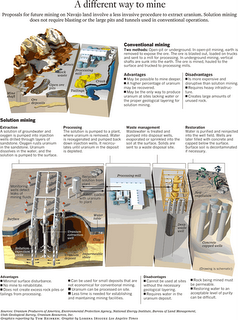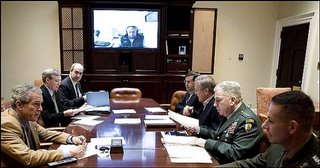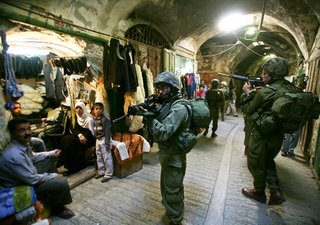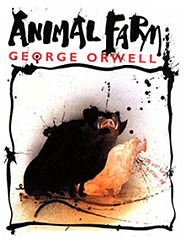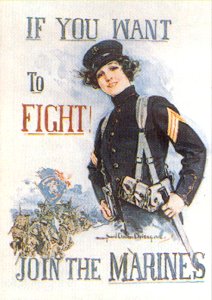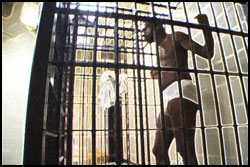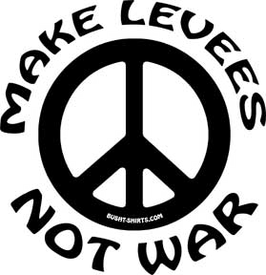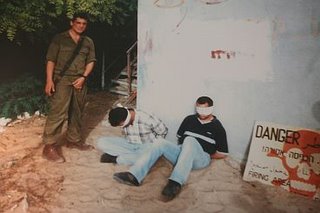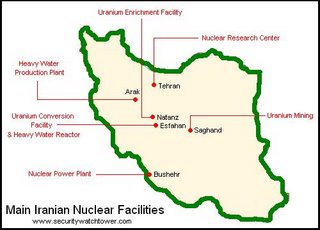
'Stubbornly pursuing a course that is destroying the planet Posted by: APR on Nov 21, 2006 - 05:33 AM Environment
By Peter Montague
We are living in a world that is essentially new. Almost everything has changed in the past 50 years. Perhaps we are trying to understand this new world using habits of thought from the old world. Maybe that is why things seem so confusing. Let's consider some of the ways the world has changed since 1950.
In the largest sense, here is the big change of the past 50 years: For aeons, there was a shortage of people and an abundance of nature. We set up all our institutions (churches, corporations, governments, laws, courts, media, schools) to encourage population growth and economic growth (the accumulation of capital assets -- farms, factories, highways, ports, power plants, and so on). Now we find ourselves with a shortage of nature, a superabundance of people, and a glut of capital assets -- more than we know what to do with, really. Because of this fundamental shift, almost everything is different now than it was 50 years ago. But our institutions, our language, and our mental tools have not changed. As a result, we are stubbornly pursuing a course that is wrecking the future.
Let's review some features of our new world:
Trends in the Destruction of Nature
1. More Humans
During the last 50 years, global human population more than doubled, from 2.8 billion people to 6.5 billion (in round numbers). The U.S. Bureau of the Census estimates that global population will reach 9.4 billion by 2050, a 44% increase in 45 years. It might even grow faster than that, doubling in 35 years to 12 billion, but even 9 billion would surely stress the planet's already-stressed ecosystems mightily.
Where will we put 44% more farms (with their fertilizers and pesticides and demand for fresh water), 44% more mines, more roads, highways, parking lots, airports, cars, trucks, buses, ships, trains, planes), more cities, hospitals, prisons, ports? And of course more wastes at every step.
All this will require at least 44% more power plants, which produce their own unique wastes (among them toxic or radioactive sludges, solid residues, and global warming gases).
We're already at a point where we've had to acknowledge there's no place left to throw things "away" -- there is no "away" -- the planet has been thoroughly doused with toxicants. Fog, rain and snow now contain measurable levels of toxic waste.
2. Global warming is upon us
Fifty years ago this seemed a remote theoretical possibility. Today it is a widely-acknowledged problem, looming ever larger the more we learn about it.
The likely consequences of global warming are more intense and more frequent hurricanes, tornadoes and typhoons, more severe and frequent droughts, floods, wild fires, and heat waves; rising sea levels with coastal inundation; more human disease (malaria, yellow fever, dengue fever) and other negative impacts on human health.
The main human contributions to global warming are emissions from automobiles and electric power plants burning fossil fuels. In its authoritative report, World Energy Outlook, the OECD (Organization for Economic Cooperation and Development) projects a 55% annual increase in global carbon dioxide emissions by 2030 unless national policies change pretty quickly. So far, nations have shown little inclination to make the needed changes, least of all the biggest emitter, the U.S.
3. Destruction of ocean productivity
Fifty years ago the oceans seemed unimaginably vast, so huge that humans could not possibly affect them. Yet today we know that humans have managed to...
(a) contaminate every part of the world's oceans with industrial poisons;
(b) pollute vast near-shore ecosystems with excessive nutrients (mainly nitrogen), giving rise to large "dead zones," enormous algae blooms (red and brown tides), contaminated groundwater and massive fish kills;
(c) progressively destroy many of the world's coral reefs; and
(d) exhaust many of the world's fisheries. In November, 2006, a study published in Science magazine predicted the collapse of all ocean fisheries by 2048 unless major changes occur in fishing practices.
4. Fresh water
Water pollution is reducing the useable supply of fresh water in most countries, even as the demand for fresh water is rising. At least 80 countries holding 40% of global population were facing water shortages in 2000. According to the United Nations, by 2025, 2/3rds of the global population is expected to be living in water-stressed regions. In addition, in 2000, 2.4 billion people (40% of the global population) were living without basic sanitation.
Because surface water sources have been depleted or polluted, many countries have started pumping their underground supplies, but nature generally replenishes underground sources only very slowly. Furthermore, underground water supplies are now becoming polluted. In its authoritative report, Environmental Outlook, the OECD said, "Available evidence suggests that there is a trend towards a worsening of aquifer water quality in OECD regions. Once groundwater sources are contaminated, they can be very difficult to clean up because the rate of flow is usually very slow and purification measures are often costly," the OECD says. (pg. 103) Worse, growing water scarcity is already giving rise to conflicts within and between countries -- water wars -- that are likely to increase as time goes on.
5. Forests
Within OECD countries, original "old growth" forests are being cut and replaced by secondary growth and by simple monoculture tree farms, which require artificial fertilizers and pesticides to survive. Thus, although the total area of forests is holding steady in OECD regions, the quality of forested lands, measured by natural habitat and biodiversity, is steadily declining. Some trees may grow quickly but forests take centuries to mature. The prospect for tropical forests is worse. With 37 million acres being cut down each year, "Tropical deforestation is expected to continue at alarming rates over the next few decades," says the OECD. (pg. 125) In the blink of an eye, between 2000 and 2020, the world is expected to lose almost 6% of its total remaining forested land, the OECD says. (pg. 136)
6. Acid Rain
Acid rain, snow and fog, caused by emissions of sulphur and nitrogen oxides, damage forests, soils and fresh water ecosystems. Acid rain "has been identified as an important factor in forest demise," says the OECD (pg. 127), and "Current acid deposition levels in Northern Europe and parts of North America are at least twice as high as critical levels." (pg. 190) In Europe the situation is expected to improve in the next 10 years but elsewhere in the world, it is expected to worsen. Outside OECD countries, both sulphur and nitrogen oxide emissions are expected to increase substantially in the next two decades: "Thus, acid depositions are likely to continue to contribute to acidification of surface waters and soils in these areas and reduce the quality of the most sensitive ecosystems." (pg. 190)
7. Loss of Biodiversity
Humans are relentlessly clearing and plowing up the habitat needed by other creatures, mostly converting it to farmland. Then many of the farmlands themselves are being despoiled by poor irrigation practices (which bring salts up from deep soils and deposit them in the top layers) and by soil erosion. According to the OECD, two-thirds of the world's farmlands have already been degraded to some degree and one- third have been "strongly or very strongly degraded." (pg. 138) Furthermore, half the world's wetlands have already been destroyed. (pg. 136) And the biodiversity of freshwater ecosystems is "under serious threat" with 20% of the world's fresh water fish extinct, threatened or endangered. (pg. 138) Half of all primates, and 9% of all known species of trees are at some risk of extinction, the OECD says. (The United Nations is even less optimistic about the future of primates.) Between now and 2020, biodiversity in OECD countries is likely to degrade further. (pg. 138) The United Nations reports that 24% of all mammals on Earth, and 11% of all bird species, are now considered globally threatened with extinction.
Species are now going extinct at a rate somewhere between 100 and 1000 times as fast as the historical rate of extinction of species. We are shredding Creation.
In addition, ecosystems are being scrambled by invasive species and by the unintentional spread of genetically engineered organisms into the wild.
8. Chemicals are Destroying Wildlife
As global warming melts Arctic ice, polar bears swim toward distant ice flows, which now no longer exist, and they drown. The demise of the polar bear is now predicted for later this century. How do we explain drowning bears to our children?
Fish in much of the fresh water of the U.S. are having their gender changed by exposure to biologically-active chemicals -- including the residues of pharmaceutical products flushed from households into sewage treatment plants, then into streams and rivers. Many male fish are being feminized.
Frogs are disappearing around the world, for a variety of reasons ranging from habitat destruction to excessive ultraviolet radiation (a byproduct of DuPont's destruction of the earth's ozone shield) to pesticides and other industrial poisons.
Chemicals are interfering with all the biological systems that allow wildlife to thrive -- harming their immune systems, their reproductive systems, giving them cancer and a host of other diseases. Sea turtles are endangered by mysterious growths appearing on their faces, making it impossible for them to eat, starving them to death. Killer whales (Orcas) are disappearing from the Pacific Northwest because of Monsanto's PCBs wrecking their reproductive systems. This short list barely scratches the surface.
All of these problems, and more, were studied by a group of 1360 scientists from 95 countries during the period 1999-2005. Their study, called the Millennium Ecosystem Assessment, drew three broad conclusions:
1) Of 24 ecosystems they studied worldwide, 60% are being degraded by human activities. "We're undermining our ecological capital all around the world," said Robert Watson, chief scientist of the World Bank.
2) Global degradation is increasing the chances of sudden, drastic changes in ecosystems, such as the collapse of fisheries or the emergence of new diseases from fragmented forests.
3) The pressure on ecosystems is disproportionately harming the poor. The report says healthy ecosystems are essential for alleviating poverty.
In releasing their report, the Millennium Ecosystem Assessment scientific board of directors did not mince words:
"At the heart of this assessment is a stark warning. Human activity is putting such strain on the natural functions of Earth that the ability of the planet's ecosystems to sustain future generations can no longer be taken for granted," they said.'
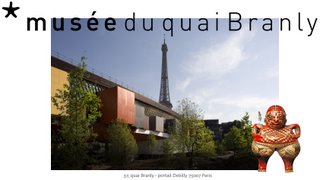 Ik ben een paar dagen in Parijs. Ik heb vandaag urenlang Musee du Quai Branly bezocht, het nieuwe museum dat geheel is gewijd aan de kunst en beschaving van Afrika, Oceanie en het continent Amerika. Wat een schitterend museum, het is een ode aan de de mensheid en de enorme verscheidenheid, het is een van de belangrijkste musea die ik heb gezien tijdens al mijn reizen. U kunt er allemaal topstukken zien, meesterwerken uit alle niet Europese beschavingen die hier zijn toon gesteld. een museum waar je gelukkig van wordt. Men ziet er hoe onvoorstelbaar rijk de vormentaal is. Terwijl ik door het - ook architectonisch - schitterende gebouw liep, vroeg ik mezelf af hoe deze culturen zich zouden hebben ontwikkeld als het Europees kolonialisme niet zoveel had vernietigd. Het enige dat ons machtiger maakte was onze technologische voorsprong. Maar qua kunstzinnigheid en innerlijke beschaving waren deze civilisaties de Europese ver vooruit. Alles versierden ze, de eenvoudigste gebruiksvoorwerpen zagen er schitterend uit, terwijl wij nog in het middeleeuwse Europa niet eens een mes en vork hadden. Ik zag ook weer eens hoe schatplichtig de moderne kunst is aan de kunst van Afrika en Oceanie. Ergens is er een oerbron waaruit alle vormen voortkomen en terugkeren. Die oervorm kunt u in dit museum bewonderen. Als u tijd en geld heeft, bezoek dit museum, het verrijkt u.
Ik ben een paar dagen in Parijs. Ik heb vandaag urenlang Musee du Quai Branly bezocht, het nieuwe museum dat geheel is gewijd aan de kunst en beschaving van Afrika, Oceanie en het continent Amerika. Wat een schitterend museum, het is een ode aan de de mensheid en de enorme verscheidenheid, het is een van de belangrijkste musea die ik heb gezien tijdens al mijn reizen. U kunt er allemaal topstukken zien, meesterwerken uit alle niet Europese beschavingen die hier zijn toon gesteld. een museum waar je gelukkig van wordt. Men ziet er hoe onvoorstelbaar rijk de vormentaal is. Terwijl ik door het - ook architectonisch - schitterende gebouw liep, vroeg ik mezelf af hoe deze culturen zich zouden hebben ontwikkeld als het Europees kolonialisme niet zoveel had vernietigd. Het enige dat ons machtiger maakte was onze technologische voorsprong. Maar qua kunstzinnigheid en innerlijke beschaving waren deze civilisaties de Europese ver vooruit. Alles versierden ze, de eenvoudigste gebruiksvoorwerpen zagen er schitterend uit, terwijl wij nog in het middeleeuwse Europa niet eens een mes en vork hadden. Ik zag ook weer eens hoe schatplichtig de moderne kunst is aan de kunst van Afrika en Oceanie. Ergens is er een oerbron waaruit alle vormen voortkomen en terugkeren. Die oervorm kunt u in dit museum bewonderen. Als u tijd en geld heeft, bezoek dit museum, het verrijkt u.



